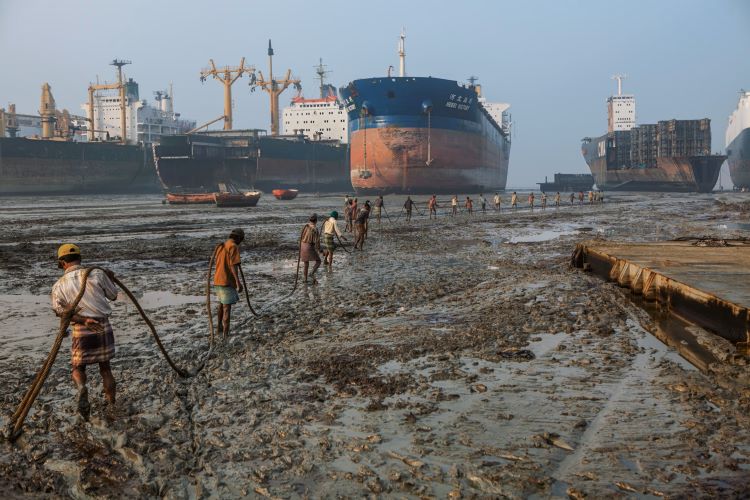Decline of Bangladesh’s Shipbreaking Industry

The shipbreaking industry in Bangladesh has faced significant challenges over the past few years. In 2023, the industry imported only 144 scrap ships, totaling 9.68 lakh Gross Tonnage (GT), marking the lowest figures since 2005. This decline is attributed to various factors, including the ongoing effects of the Covid-19 pandemic and the geopolitical tensions stemming from the Russia-Ukraine war. As Bangladesh’s shipbreaking sector grapples with these hurdles, experts warn that it may soon lose its position as a global leader in ship recycling.
Factors Contributing to the Decline
The decline in Bangladesh’s shipbreaking industry can be traced to multiple interrelated factors. The Covid-19 pandemic triggered an economic downturn that affected many sectors, including shipbreaking. In 2022, the industry saw a drop in imports to 1.14 million GT, a trend that continued into 2023 with further reductions. By 2024, for the first time in two decades, imports are expected to fall below 1 million GT.
Industry leaders cite the dollar crisis as a significant issue. The high international prices of ships have made it difficult for local recyclers to compete. Additionally, low local demand, exacerbated by political unrest and economic slowdown, has further complicated the situation. The Bangladesh Bank has imposed import restrictions, and many shipbreaking yards are closing due to the government’s green transformation requirements, which mandate compliance with environmental standards by July 2025.
Zahirul Islam Rinku, vice president of the Bangladesh Ship Breakers and Recyclers Association (BSBRA), noted that the rising prices of end-of-life ships have deterred imports. The local steel market has also seen a decline in demand, leading to lower prices for scrap steel. This has discouraged recyclers from importing ships, as the cost of operation has become unsustainable. The delayed issuance of cutting permissions from the government has added to the financial strain, making it challenging for entrepreneurs to operate profitably.
The Competitive Landscape
As Bangladesh’s shipbreaking industry struggles, India is positioning itself to take advantage of the situation. Reports indicate that India’s ship recycling industry aims to process between 2.3 and 2.6 million GT in 2024, with expectations to grow to 3.8 to 4.2 million GT by 2025. Currently, India accounts for 33% of the global gross tonnage dismantled, second only to Bangladesh, which recycled 46% in 2023.
Captain Anam Chowdhury, president of the Bangladesh Marine Officers Association, expressed concerns that Bangladesh may lose its top position to India. He highlighted that India has developed 120 green yards along its coast with $100 million in funding from international donors. In contrast, Bangladesh has only managed to establish five green yards in the past decade. With the ratification of the Hong Kong Convention in 2023, only green-certified yards will be allowed to recycle ships after July 2025, putting further pressure on Bangladesh’s industry.
Experts warn that without government intervention and financial support, the shipbreaking industry in Bangladesh, which contributes significantly to the national economy, may face a shutdown. The industry generates substantial revenue for the government and provides livelihoods for around 20,000 workers. Industry leaders are urging the government to invest in the sector to ensure its survival and competitiveness in the global market.
